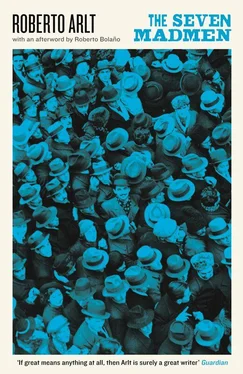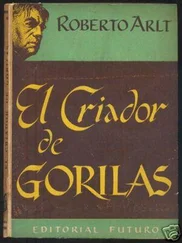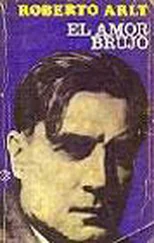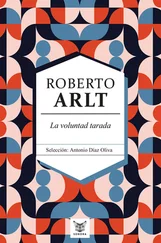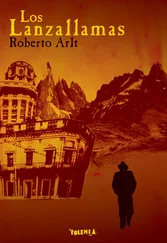He did not suffer for himself, for the person registered on his birth certificate, but his consciousness, split off from his body, looked at him like a stranger, and he said to himself:
“Who will have pity on mankind?”
And these words, which summed up all his thinking, upset him even more, filling him with a painful tenderness towards his invisible fellow men.
“Falling … falling lower all the time. And yet others are happy, they find love — but they all suffer. The thing is, some realise it and others don’t. Some blame it on what they haven’t got. What a ridiculous dream that was! Yet her face was lovely. What made the most sense was what she said about the unscrupulous prince. Oh! If only I could sleep at the bottom of the sea, in a lead chamber with thick portholes. Sleep for years and years, while the sand piled up, and I went on sleeping. That’s why the Astrologer is right. The day will come when people will make the revolution because they have no God. Mankind will declare itself on strike until God appears.”
The bitter smell of cyanide drifted into his nostrils; through his half-closed eyelids he could dimly make out the milky light of morning, but he felt as distant as if he had been on the sea-bed and the sand was piling up endlessly on top of his leaden hut. Somebody tapped him on the shoulder.
He opened his eyes to find the waiter saying to him:
“You can’t sleep here.”
He was about to reply, but the waiter had moved on to wake up another customer. This was a stocky man who had fallen asleep with his bald head in his arms, which were folded across the table-top.
The sleeping man did not respond to the waiter’s urgings, so the café owner, a man with a handlebar moustache, came over and shook him so violently his body almost doubled up, and only the edge of the table kept it from toppling over.
Intrigued, Erdosain got to his feet, while the other two cast sidelong glances at each other and at their odd client.
The sleeping man did not move from his absurd position. His head lolled back on one shoulder, giving them a glimpse of a flat, pockmarked face and a pair of dark glasses. A trickle of reddish saliva ran down from his blue-tinged lips to his green tie. A sheet of paper with writing on was trapped under his elbow on the table. They suddenly realised he was dead. They went off to call the police, but Erdosain remained rooted to the spot, fascinated at the sight of this sinister suicide in dark glasses, with blue blotches slowly spreading over the skin. And still the smell of bitter almonds hung in the air, apparently coming from his gaping mouth.
A part-time policeman arrived, then a sergeant, followed by two more policemen and an inspector. They all poked and prodded at the dead man as if he were a steer. All at once the part-time policeman said to the inspector:
“Don’t you know who he is?”
From the dead man’s pocket the sergeant took a hotel bill, a few coins, a revolver, and three sealed envelopes. “So this is the man who killed that girl over in Talcahuano?” They took the dead man’s glasses off, and now his eyes were visible, squinting, with their whites turned up, and the eyelids shot through with red as if he had been crying tears of blood. “Didn’t I tell you?” the first policeman said. “Here’s his identity card.”
“He was going to go to Ushuaia for the rest of his life.”
When he heard that, Erdosain remembered the story as if he had read about it in the distant past. (In fact, he had seen it in a newspaper only the morning before.) The dead man was a crook. He had left his wife and five children to live with another woman, whom he had three children with. But then two nights earlier he had appeared at a hotel in Talcahuano with his new lover, a young girl aged seventeen. And at three in the morning he had covered her face gently in a pillow, and shot her through the side of the head. Nobody in the hotel heard a thing.
At eight the next morning the murderer got dressed, left the door to the room ajar, and called the maid to ask her not to wake his wife until ten o’clock because she was very tired. Then he went out, and the dead girl was finally discovered at noon.
But what most impressed Erdosain was the thought that the murderer had spent five hours alone with the dead girl, five hours with her body in the loneliness of the night … and that he must have loved her a lot.
And yet hadn’t he felt exactly the same a few hours earlier with the red-headed woman? Was it an unconscious memory, or did it come from the suicide doubled up in front of him?
The hospital ambulance drew up and the body was loaded into it.
The police asked him questions. Erdosain told them the little he knew, then went out into the street, still intrigued. An ill-defined, painful question lay at the back of his mind.
He recalled that the turn-ups of the dead man’s trousers were muddy; his shirt was dirty and grimy: how in spite of all this had he succeeded in winning the love of the young girl he had killed?
Did love exist then? In spite of his two wives and scattered children, in spite of his sordid life as a thief and a swindler, the murderer had known love. Erdosain pictured him in the cruel night, there in that hotel frequented by prostitutes and people with no real jobs, in a room with peeling wallpaper, staring at the waxen, cold face of the young girl spattered with blood. Five mournful hours staring at the girl who a short while before had taken him in her bare arms. Erdosain reached the Plaza Once in this painful daze.
It was five in the morning. He went into the railway station, looked all around him, and, still feeling sleepy, went and huddled on a bench in a corner of the waiting-room.
At eight he was woken out of a deep sleep by the noise a passenger made with his suitcases. He rubbed his aching eyes. The sun was shining in a cloudless sky.
He went outside and caught a bus to Constitución Station.
The Astrologer was waiting for him on the platform at Temperley.
Erdosain immediately recognised his stocky figure in its overcoat, his hat down over his eyes and his drooping Gallic moustache.
“You’re very pale,” the Astrologer said.
“I’m pale?”
“Yellow.”
“I didn’t sleep well … and to top it all, I saw a suicide this morning …”
“OK, here’s the cheque.” Erdosain examined it. It was made out for 15,373 pesos, to be paid in cash — but the date was for two days earlier.
“Why did he put that date?”
“It’ll look better. The bank clerk will know that if the cheque had been lost, by the time you present it, it would have been stopped.”
“Did he argue a lot?”
“No … he smiled. He thinks he’s going to send us all to gaol … ah! and before you go to the bank, visit a barber’s and get a shave.”
“Does Bromberg know?”
“No, we’ll wake him when it’s time.”
There were only a few minutes before the train arrived. Erdosain smiled at the Astrologer and said:
“What would you do if I ran away?”
The Astrologer stroked his moustache, and replied:
“That’s as impossible as the idea that the train won’t stop here.”
“But let’s admit the possibility for a moment.”
“I can’t. If I thought it even for a second, I wouldn’t send you to cash the cheque … Ah! … Who was it that committed suicide this morning?”
“A murderer. Very odd. He killed a girl who refused to go and live with him.”
“A waste of effort.”
“Would you be capable of killing yourself?”
“No … you must realise I’m destined for greater things.”
Erdosain asked a strange question:
“Tell me, d’you think red-haired women are ruthless?”
“I wouldn’t say that … it’s more that they’re asexual; that’s why the cool way they look at everything leaves such a harsh impression. The Melancholy Thug told me that in all his years as a pimp he’d dealt with hardly any redheads … Anyway, don’t forget to shave. Go to the bank at eleven, not before. I’ll see you at lunch, right?”
Читать дальше
